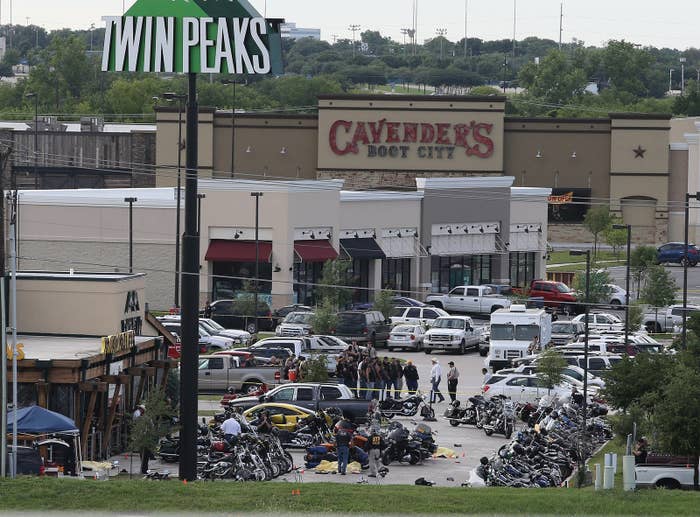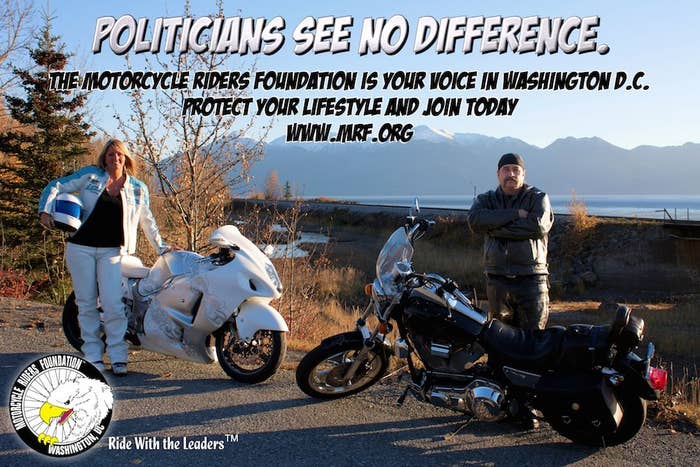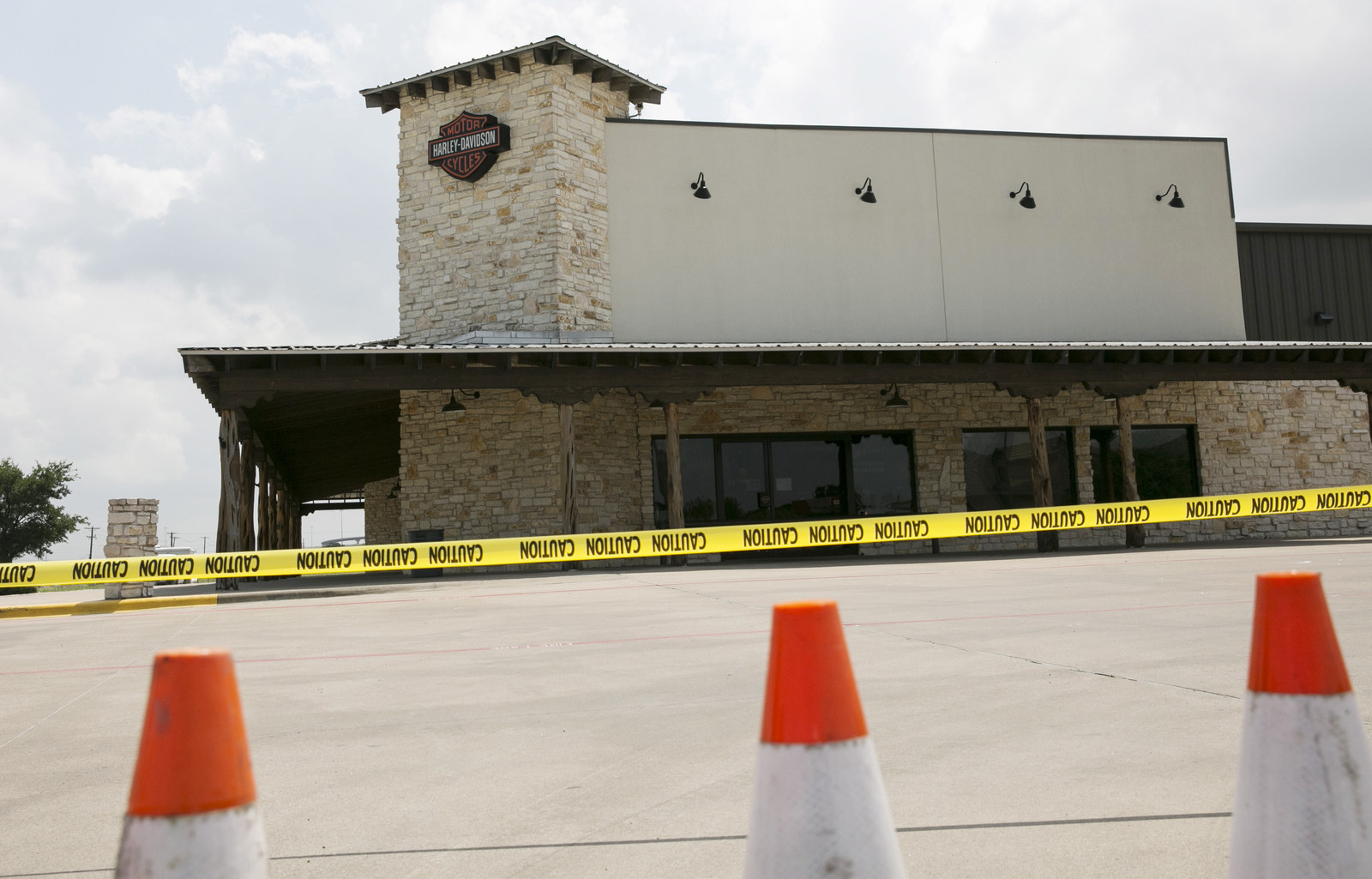
The reverberations from Sunday's shootout in Waco — amid what police said was a deadly "turf war" between rival outlaw biker gangs that left nine dead — have echoed beyond the Texan parking lot that served as the makeshift battleground. Advocates and lobbyists pushing for "bikers' rights" in Congress and state capitols told BuzzFeed News the bloodshed has only made their jobs tougher.
"Whenever something like this happens my phone blows up," Jeff Hennie, vice president of government and public affairs for the Motorcycle Riders Foundation, told BuzzFeed News from his office in Washington, D.C. "But it doesn't change what I do day to day. Sure, it makes things more difficult. Luckily, I think most people are smart enough to know this is not a motorcycle problem. This is a criminal problem."
Hennie and the MRF, as well as biker and motorcyclist organizations around the country, have been campaigning for laws that benefit those who choose what he describes as the "most affordable and most environmentally friendly mode of transportation that we have in this country."
A key issue for MRF are relaxing mandatory helmet laws. Another is federal checkpoints for motorcycles, where officers pull over motorcyclists to check their vehicles and provide them with a safety briefing – a process Hennie described as "total bullshit." (In April, Republican Rep. Jim Sensenbrenner of Wisconsin reintroduced a bill to defund the program in order to "protects motorcyclists’ rights." His office did not respond to a request for an interview.)
But with current headlines that seem ripped from an episode of the biker gang drama Sons of Anarchy, and police pointing to the Waco shoot-out as evidence of the serious problem posed by criminal biker gangs, Hennie acknowledged that he is also battling public perceptions.
"It's going to take a long time to make amends for it," he said, referring to the bloodshed in Waco. "They're making it hard for themselves."
"Even without people getting murdered, we have restaurants and bars and businesses that have a 'no colors' policy," he said, referring to establishments that refuse entry to those wearing the colors or insignia of biker gangs. "We have enough of this already. This is just throwing gas on the fire."

In a Facebook post Monday, the Texas Confederation of Clubs and Independents said it was "sad" over the events at Waco's Twin Peaks restaurant, which it described as a "meeting location" for the group. "We are steadfast as a community in representing bikers in a positive fashion," the group wrote. "We protect our rights and freedoms at the State Capitol ... [and] We will not let this tragic event tarnish all the good Texas Bikers have done and will continue to do for the community and all of those riders who enjoy experiencing the open road on two wheels."
In a 2012 interview, the group's vice chairman, "Escondido" Paul Landers, outlined the "grassroots" nature of his organization's campaign efforts for bikers' rights. "Maybe it’s an equal access problem," he said during an interview with Clubhouse magazine. "Somebody decides they don’t like patch holders [or colors]. Well, we rally and go out have a glass of water atop his parking lot all afternoon until he
sees the better of his ways."
"Motorcycle history has been altered to incorporate one percenters, mom and pop clubs, service organization, veterans clubs, sport bike riders," he said at the time. "This is our life. We’re very serious about our life and our passion is contagious. So, when you meet people that are willing to put off a day’s work, lose wages, spend their gas money to ride 300 miles to walk the halls of the state capitol to let their
representative know this is our house and we demand that our rights are protected."

Hennie, of the MRF, acknowledged that the "broad church" membership of motorcycle organizations like his, where anyone who pays dues can join, "makes life difficult."
Still, he said, "I don't lobby for criminals, murderers, drug dealers, or human traffickers. That's a completely different subset. There's nefarious people in any profession...a seedy underbelly to any large population."
"I don't think you can just cast a light on the entire club network because of a few bad apples. Most of the club community are just people that want to ride their motorcycles," he said.
As crime scene investigators continue to process evidence at the Twin Peaks restaurant and parking lot, hundreds of bikes have been impounded and more than 170 people arrested and booked on charges of engaging in organized crime.
Officers patrolling the city have noticed a substantial decline in the number of motorcycles on the roads, police spokesperson Sgt. Patrick Swanton said Monday, after authorities warned bikers not to head south for retribution and asked other riders to stay off the road. Even the local Harley-Davidson store was closed indefinitely at the request of authorities.
"If I'm a business owner in Waco, what's the advantage of letting people
wearing colors into your establishment right now?" Hennie asked. "Nothing."
